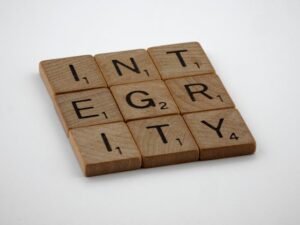How Hypersensitivity and Cancel Culture Threaten Freedom of Speech
By BlaqKharma / December 16, 2024 / No Comments / Politics
Freedom of speech is a pillar of democracy. It is woven into the First Amendment and is central to American identity. Yet, in recent years, hypersensitivity and cancel culture threaten this right. These forces silence open dialogue, promoting fear and conformity instead. This change, driven by the American people, risks taking away our basic rights. Our actions and emotional fragility, not outside forces, harm free expression and diverse ideas. Can we have an honest conversation about this? LetŌĆÖs begin.
Freedom of speech is more than a legal entitlement; it is a societal obligation. It allows individuals to express their beliefs and question the status quo. It is designed to encourage open debate without fear of censorship or retaliation. This right comes with a duty. We must accept that others may express unpopular opinions. Some of these opinions may be offensive or even outright wrong, but they are still protected.
A healthy society thrives on the ability to engage in civil discourse. The strength of free speech lies in its potential to challenge, provoke, and enlighten. Unfortunately, hypersensitivity has fueled a climate of public shaming. Disagreements often turn hostile, allowing little room for respect.
Hypersensitivity has transformed the nature of public discourse. Today, even innocuous comments can spark outrage. We must consider our words’ impact. But, today’s climate often favors emotional comfort over tough ideas. This shift has made some feel entitled to demonize ideas they find offensive.
The world does not cater to comfort zones. Growth, both personal and societal, comes from engaging with tough ideas. It does not come from silencing them to avoid hurt feelings. Hypersensitivity is creating a fragile culture. It suppresses open dialogue and critical thinking in favor of emotional reactions.
The Rise of Cancel Culture and Its Threat to Intellectual Freedom
Cancel culture amplifies hypersensitivity by turning criticism into a tool for ostracism. It seeks to punish people for perceived missteps, not to foster dialogue. This trend often allows no room for context or apology. It fuels a zero-tolerance mindset.
 Social media fuels cancel culture through groupthink and echo chambers. Outrage often silences opposing perspectives, creating a chilling effect. People are increasingly self-censoring. They fear being “canceled.” It’s not due to respect for others. They just fear the consequences. This smothering atmosphere hinders innovation and creativity. It blocks the exploration of controversial ideas vital for progress.
Social media fuels cancel culture through groupthink and echo chambers. Outrage often silences opposing perspectives, creating a chilling effect. People are increasingly self-censoring. They fear being “canceled.” It’s not due to respect for others. They just fear the consequences. This smothering atmosphere hinders innovation and creativity. It blocks the exploration of controversial ideas vital for progress.
Hypersensitivity and cancel culture have eroded nuance in conversations. Complex issues are often reduced to simple, two-sided stories. This leaves little room for critical analysis or debate. This discourages people from discussing controversial topics. They fear backlash for exploring alternative viewpoints.
Political, religious, and social discussions frequently devolve into name-calling and accusations. Instead of weighing arguments, individuals use labels like “bigot” or “ignorant.” This stifles meaningful dialogue. This toxic environment alienates potential contributors and undermines the pursuit of understanding.
Discomfort is a catalyst for progress. Freedom of speech includes the right to express opinions that may offend others. This does not excuse malicious intent. But it shows the need to allow controversial ideas in public discourse. Many important movements in history, like civil rights and gender equality, began with unpopular, offensive ideas.
Suppressing uncomfortable truths or dissenting voices risks societal stagnation. Progress often emerges from questioning the status quo. Prioritizing comfort over free expression hinders our ability to fix society. Protecting the right to offend lets new, transformative ideas flourish.
The Art of Respectful Disagreement
Disagreement is not harmful. It is a natural, necessary part of human interaction. Respectful disagreement can be a powerful tool for growth. Rejecting someone’s ideas without personal attacks or shaming builds stronger communities and relationships.
When individuals feel heard, they are more likely to reciprocate by listening. This dynamic forms the foundation of productive dialogue. In contrast, hypersensitivity and cancel culture silence dissent. They deprive society of chances for growth and connection.
By embracing hypersensitivity and cancel culture, Americans are unknowingly eroding their freedoms. This self-inflicted harm weakens societal cohesion and undermines progress in several critical ways:┬ĀFear of expression has caused widespread self-censorship. People avoid sharing their true thoughts for fear of backlash. This creates shallow interactions and prevents genuine connections from forming. Suppressing unconventional ideas murders innovation. It limits the creativity and problem-solving that drive progress. Also, cancel culture creates an “us vs. them” mentality. It deepens divides and pushes people into ideological silos. A culture that avoids discomfort breeds fragility. Resilience comes from learning to navigate conflict and hardship.
Reclaiming Freedom of Speech
Reversing these trends requires a collective commitment to preserving freedom of speech. To protect this right, we must allow all opinions, even unpopular ones. Promoting open dialogue is essential. Encouraging open discussions can build bridges. They should welcome diverse views, without fear of judgment or retaliation.  Valuing tolerance is key. It means respecting others’ right to express their views. It is not about agreeing with them. We must nurture critical thinking. It should teach people to evaluate ideas on their merits. They must avoid emotional reactions and groupthink. Forgiveness allows for mistakes and growth. It counters the harshness of cancel culture. Finally, embracing diverse thinking resists conformity. It celebrates diverse ideas as a strength.
Valuing tolerance is key. It means respecting others’ right to express their views. It is not about agreeing with them. We must nurture critical thinking. It should teach people to evaluate ideas on their merits. They must avoid emotional reactions and groupthink. Forgiveness allows for mistakes and growth. It counters the harshness of cancel culture. Finally, embracing diverse thinking resists conformity. It celebrates diverse ideas as a strength.
Hypersensitivity and cancel culture threaten freedom of speech, a core democratic value. By valuing comfort over dialogue, society may lose the principles that drive progress. Disagreement and discomfort are not enemies; they are vital for growth and understanding. To protect free speech, Americans must resist censorship. They must also cultivate a culture of respect, resilience, and open debate. Only through this can the spirit of free expression endure for future generations.
In other words:
GET OUTCHO MUTHA FUKKIN’ FEELINGS AND GO CRY IN THE CAR WITCHO SENSITIVE ASS!!!
